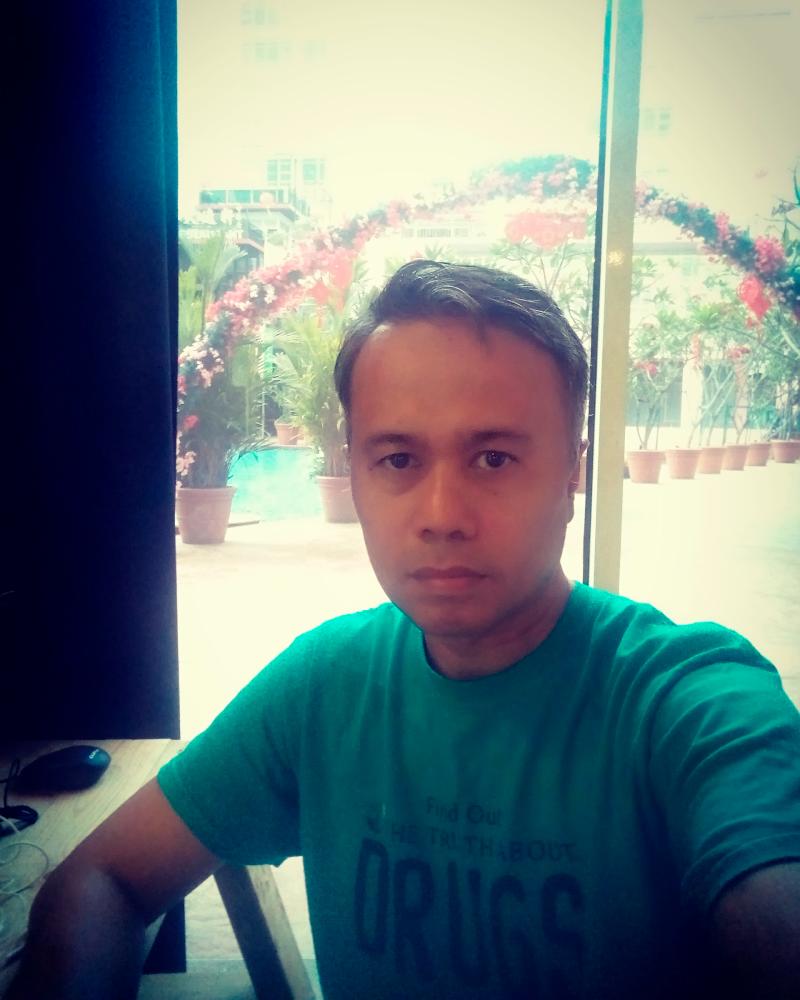IT was a fateful day when I was seated in front of my TV waiting for the director general of the Ministry of Health to give us the latest update on the Covid-19 status in our country.
Just before the live telecast of his findings came on, viewers were treated to an interview with punk rock musician Khai Aziz, who recently collaborated with a group of artistes including the legendary Chick Corea, Mark Isham and Stanley Clarke on a song called Spread A Smile which was recorded individually from the comfort of each singer’s home.
Prior to this collaboration, Khai was actually invited to receive a Drugs Free Hero Award in May in the US, but due to the pandemic, the event got postponed to next year. The organisers, SMP Productions, then decided to do an uplifting video instead and invited Khai to be a part of it.
“The best thing about this video clip is that most of the people in it are legends or well known in the US music industry. So I am quite lucky to be a part of it,” Khai said.
Khai had previously been featured in SMP’s Voices For Humanity documentary series. He is currently the head of talent for SKWOT, an online platform for unsigned musicians, and is also a well-known anti-drugs advocate in Malaysia.
He was previously part of now-defunct punk rock band Second Combat. He formed the DFM (Drug Free Malaysia) band early this year which plays more mainstream, radio-friendly music.
Talking about how he got involved in the anti-drugs movement Khai said: “I was involved in the Straight Edge movement in the punk rock community which started in 1982. It was inspired by a band called Minor Threat who sang a song called Straight Edge (which became the movement’s anthem).
“I was a young boy at the time. I was involved in drugs, smoking and alcohol. But I found Straight Edge to be cooler. It told us that you could be into music, into punk rock, but you don’t have to be into drugs and vice. It told us to be clean and to think about the community. It changed my perspective. So, from a risky youth who wanted to try these things, I decided to go straight and direct positive messages through my music.”
He said that bands involved in Straight Edge wrote positive songs to change mindsets. “I was intrigued and wanted to be a part of it.”
Drug abuse was something that hit Khai close to home, as he has had family members and close friends who were involved in it as well.
“I did not want to be a part of it, I wanted to be someone who solves this problem.” So he took inspiration from the movement in the US and started a movement in Malaysia.
Just as he followed several bands who were advocating the drug-free message, a few bands began to follow him.
“A few bands and thousands of kids have become Straight Edge because of me. I even wrote a book called Aku Nak Punk, that helped promote the message of a positive lifestyle. People got to learn from my experience. I received comments that I changed lives through the example I set, my songs and my writing.”
With all the progress he made, Khai came to the attention of the international community. He has been featured by international networks such as BBC.
“Through these video clips and social media, I have managed to inspire a lot of people.”
Khai, who regularly counsels people who need to find a way out of their predicament, says that the recent stay-at-home situation (due to the Covid-19 pandemic) has kept him very busy, as he has been called in several times to deal with addicts who had gotten violent because they could not get their fix.
Khai said he is merely an advisor, and he doesn’t get involved in interventions.
The media and the entertainment industry had a part to play in making drugs cool, often portraying hardcore drug users in the music industry as edgy or cool.
“There are a lot of songs about getting high,” he said.
It is an uphill battle for Khai, and he is not going to stop this fight anytime soon.















